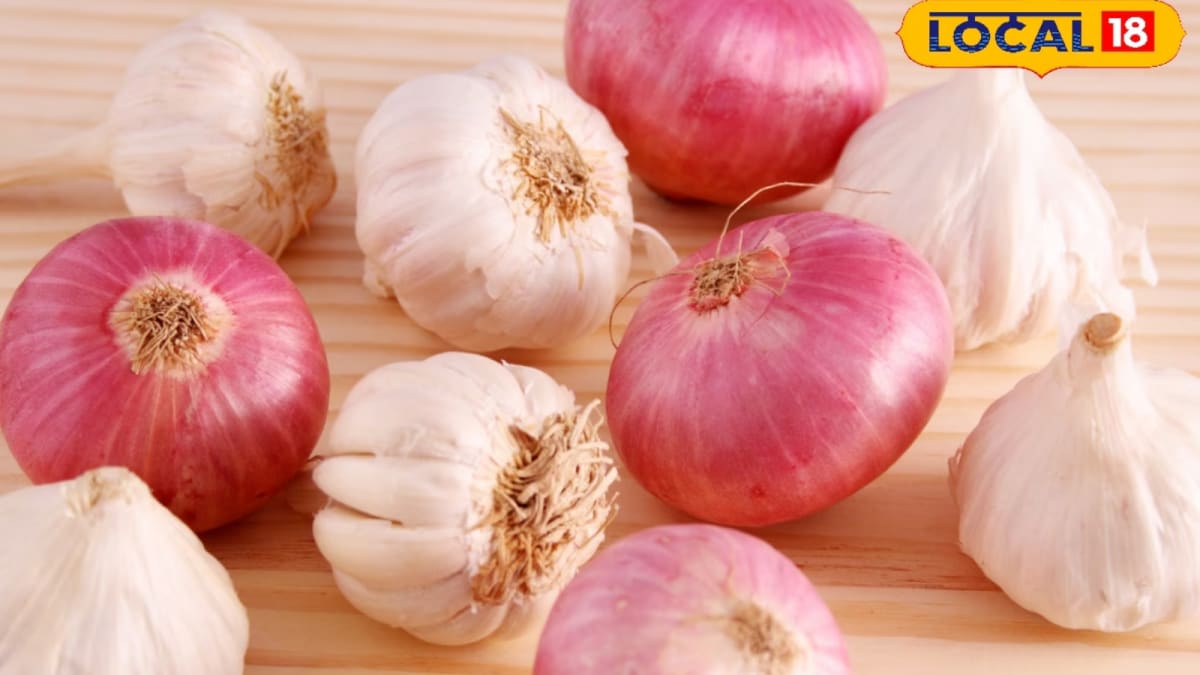Last Updated:
Garlic and onion are avoided during Hindu fasting and worship as they are ‘tamasic’ or ‘rajasic’, believed to disturb the mind and disrupt spiritual focus and purity.

Since fasting and worship aim to purify the mind and bring one closer to God, however, consuming ‘tamasic’ food could cause the mind to wander towards worldly desires. (Local18)
In Indian culture and tradition, food is regarded as more than just sustenance; it is believed to influence the body, mind, and soul. Hinduism classifies food into three categories: Satvik, Rajasik, and Tamasik. Satvik food is considered pure, calming, and conducive to mental control. Rajasik food stimulates excitement and desire, while Tamasik food promotes lethargy, anger, and negative tendencies. This is why Satvik food is preferred during worship, fasting, and religious rituals.
Why Are Onions And Garlic Avoided During Fasting?
Despite being vegetarian, onions and garlic are often prohibited during religious observances and fasting. Priest Shubham Tiwari explained to Local18 that while onion and garlic may be healthy in everyday life, Hindu scriptures classify them as Tamasik and sometimes Rajasik.
These foods are believed to draw the body’s energy downwards, increase restlessness and lust in the mind, and disrupt concentration during meditation. Since fasting and worship aim to purify the mind and bring one closer to God, consuming tamasic food could cause the mind to wander towards worldly desires, defeating the purpose of spiritual practice.
Mythological Origins Of Onion And Garlic
According to mythology, during the churning of the ocean, the nectar of immortality (Amrit Kalash) was being distributed by Lord Vishnu in the form of Mohini. A demon deceitfully drank some nectar too by sitting among the gods.
When the Sun (Surya Dev) and Moon (Chandra Dev) complained, Lord Vishnu severed the head of the demon with his Sudarshan Chakra and that led to the creation of Rahu and Ketu.
It is said that onion and garlic originated from the drops of blood that fell from the demon’s body, which is why these foods are considered tamasic and impure and thus forbidden in religious rituals.
Ayurvedic Perspective And The Practice Of Saints
Ayurveda also views onion and garlic as having sharp, hot, and stimulating properties. They are believed to excite the senses and increase anger, laziness, and lust. Therefore, yogis, saints, and sadhus avoid them, preferring a Satvik diet to ensure their spiritual practices remain unhindered.
The Purpose Of Fasting And ‘Satvik’ Food
Fasting is not merely about abstaining from food but is intended to foster self-control and mental purification. The scriptures recommend consuming Satvik foods such as fruits, milk, curd, vegetables, and grains during fasts. Such foods keep the body light and the mind stable, supporting spiritual growth.
Read More







